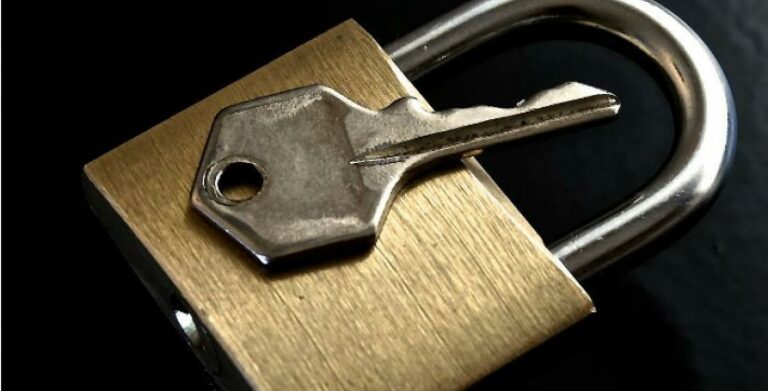How to stop petty pilfering at work
As a small business, every penny counts, but over 1/3 of staff admit to stealing from their workplace. Here are 5 ways to prevent office thefts.
As a small business, every penny counts, but while you may have done your best to budget and reduce your overheads, are your efforts being undermined by staff stealing from under your nose?

Earlier this year, a survey by price comparison website uSwitch found that 35% of employees admit to stealing from work. The most popular items pinched were stationery such as pens, notebooks, while some people even stole soap and toilet rolls. Reasons given for stealing included:
- because they didn’t have time to buy the items – 28%
- they (the items) would go to waste if they didn’t take them – 26%
- not being paid enough – 11%
- considering it a perk of the job – 7%
While 35% is a high percentage, does this indicate that the majority of employees have a strong moral compass? Not according to a similar 2013 study by Versapack. While 27% admitted to stealing from work, just over half said they would do it if they didn’t think they’d get caught. This suggests it’s more down to opportunity – or the lack of it. More worryingly, in this study, 28% confessed to taking items worth more than £100 and 12% that they had pilfered items worth more than £1,000!
According to criminology experts, stealing from the workplace is more likely to occur if employees aren’t satisfied in their jobs and more prevalent within larger organisations, where staff see the company as a faceless entity and don’t think the items will be missed.
How to protect your business from theft
Develop a culture of honesty and one where workers don’t feel the need to pinch your business goods. If your staff are happy and know they’re appreciated, they’re less likely to feel entitled to office equipment.
Check references for every member of staff you employ. According to the Centre for Retail Research (CRR) part-time and those who have been working for you for less than a year are the most likely ones to attempt to steal for you.
Be clear on the implications. It’s sensible to make all employees aware of what would happen if they were caught stealing, even if you don’t suspect anyone of theft. Make it clear the expectations you have on your staff and that stealing is unacceptable, even if it’s small, low-value items. Work out what you would do if you did catch someone stealing. Would you deal with it internally or involve the police? Would it depend on what they had taken, the amount it was worth or the number of items taken or would it be a catch-all stealing is stealing approach? If you’re unfortunate enough to experience a problem of theft and find the culprit, make sure the organisation knows why they were dismissed or whatever actions you took. This acts as a deterrent to others.
Require receipts. If your staff purchase things for work and then claim them back, make sure all expense claims have the relevant receipts and that they all add up.
Monitor your stock. You should have a good idea of how long it will take you to use a certain amount of stationery for example. If you start having to order more stock for no particular reason, this might be a sign for you to monitor stock levels more closely. Do you need your stationery cupboard to be open all day long? Lock it up or give one of your staff responsibility for it, so people have to ask for what they need. This removes the opportunity to steal.
Lunch thefts
Slightly less important for your business, but a real bugbear for staff is when you find you have a food thief. Here are some suggestions on how to prevent fridge raiders.
- Store food in opaque containers. If no one can see what’s in the container without looking in it, they can’t pretend that they thought they had bought it.
- Label your food and drink. It might not stop it being stolen, but the thief can’t claim it’s their item and they’re more likely to be caught by you or someone else.
- Keep it at your desk unless it’s perishable or needs to be refrigerated. It’s harder to steal from someone’s desk drawer than it is from the office’s kitchen cupboards or shared fridge.
- Bring in portions of food rather than buying items in bulk. For example, buy a pack of yoghurts but only bring in one to work each day, rather than storing them all at the office.
Author:
BizSpace
BizSpace is the UK’s leading provider of regional flexible workspace. For over 20 years we have been offering office, studio and workshop units to a wide range of businesses in convenient regional locations across the country. We are owned by Sirius Real Estate, a commercial property operator, that is supporting us on a journey to significant growth.
More BizSpace News

Blog
Finding a Small Industrial Unit or Workshop to Rent
Let’s be honest with each other, finding a ‘perfectly sized’ industrial unit for your business isn’t exactly fun. It’s time-consuming,…
Find out more
Blog
Designing your ideal office: 8 top tips
Focus on comfort and practicality when designing your office space, considering layout, light, furniture, clutter and accessories.
Find out more
Blog
What is a Satellite Office?
Businesses are now finally able to return to some sense of normality in our post-COVID society. There has been plenty…
Find out more